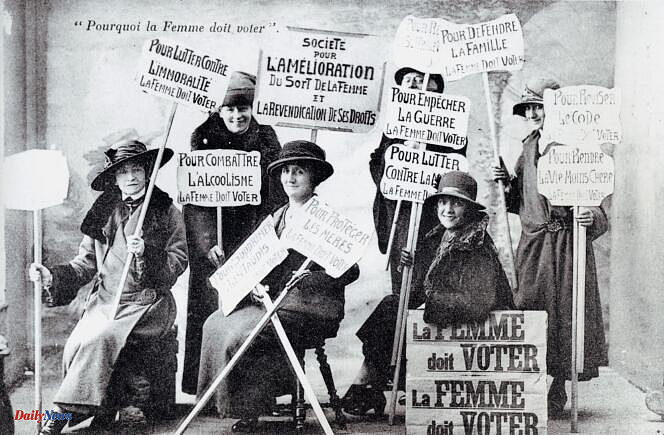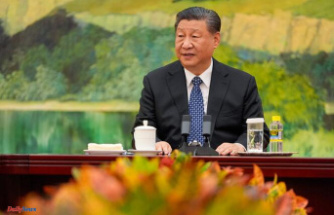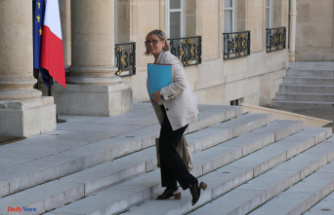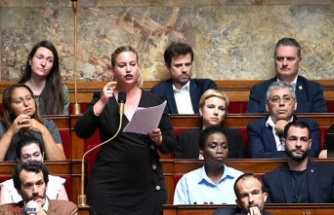On April 21, 1944, France became the 59th country to grant women the right to vote. Before Liechtenstein (1984) and Moldova (1993), but after New Zealand (first, in 1893), Australia, the United Kingdom, Spain, Germany, Burma, Azerbaijan… On the occasion of this 80th anniversary, Citizens! attempts to explain this delay by looking back on a century of feminist struggle.
Beyond a most classic and chronological production, the film benefits from the parallel with the struggles led in particular in the United Kingdom and Switzerland. It also contains some astonishing archives, such as the interview with Louise Weiss explaining why she refused to join Léon Blum's government, or the extract from Results of Feminism, produced in 1906 by the first woman filmmaker, Alice Guy, which presents an “inverted” world, in which one man sews, another irons, while the women chat among themselves.
“Missed appointments”
The film thus relates the different stages of the radical and avant-garde struggle led by the suffragettes in the United Kingdom, and by the charismatic Emmeline Pankhurst, with a reminder in images of the film “The Suffragettes”, by Sarah Gavron, in 2015. decryption, the British historian June Purvis insists on the repression carried out against activists on hunger strike – force-fed – which will tip the silent majority in their favor. Until obtaining equality in voting in 1928.
Swiss historian Caroline Stevan, co-author of Citoyennes! Once upon a time, women's right to vote (Helvetiq, 2021), studied for its part the specificities of its small country, which hindered gender equality: neutrality, semi-direct democracy, conservatism. Without forgetting the humor, perceptible during giant snail demonstrations or sidewalk microphones.
In France, after Napoleon's civil code of 1804 enshrined the inferiority of women in law, the fight became less extremist, and was led by women from high society. The film highlights the “for”, like Victor Hugo, who will inspire the suffragist Hubertine Auclert; and the “against”, such as the writer George Sand. With great conviction, Anne-Sarah Moalic, doctor of history, and the historian Martial Poirson will then list the “missed appointments”.
The documentarians also found three women who voted for the first time in 1945: Marie-José Chombart de Lauwe, a resistance fighter, Marie-Louise Guipponi, a convinced celibate, and Simone Darré, who questions the journalist: "Do you think that now it's better ? » Now, it is the abstention rate that is mobilizing. We forget that women died to obtain this right synonymous with citizenship.












